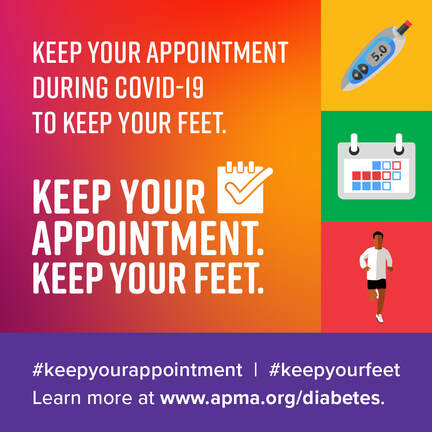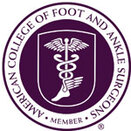|
As COVID-19 appears to be building momentum worldwide, America’s podiatrists say they’re treating some of the sickest patients of their careers—but those patients are not suffering from the coronavirus. Instead, they’re patients with diabetes who have delayed care due to fear of the virus. As a result, they are suffering serious complications, ranging from severe diabetic foot wounds to gangrene to sepsis. “People with diabetes are at high risk from COVID-19,” said Jeff Merrill, DPM, of Klamath Falls Foot and Ankle, LLC. “They should absolutely take appropriate precautions, such as wearing masks in public and avoiding large gatherings. But those precautions do not extend to avoiding regular care for their diabetes.” In fact, Dr. Merrill said, the risks of avoiding diabetes care are much higher than the risk of exposure to the coronavirus in a medical facility. Physicians’ practices are taking extensive precautions to keep patients and providers alike safe during the pandemic. Safeguards include additional PPE, requirements for patients to wear masks, social distancing in waiting areas, temperature checks, pre-appointment questionnaires, disinfection between patients, and more. Virtual appointments may also be available. “I strongly encourage people with diabetes to keep their appointments in order to keep their feet,” said Dr. Merrill. “If a patient with diabetes ignores a wound or an infection, the possibility of amputation is very real. Once a person with diabetes suffers an amputation, the five-year mortality rate is higher than for many cancers.” Dr. Merrill suggests three steps for people with diabetes to maintain control of their diabetes during the COVID-19 pandemic:
1. Stay active. Engage in regular exercise. Don’t be tempted to overindulge in comfort foods. Instead, stick to a sensible diet designed to help control blood sugars. 2. Stay alert. Track blood sugar levels daily and be sure to have regular bloodwork to monitor your A1C (a measure of average blood sugar level over the past couple of months). Be vigilant about daily foot exams. Watch for changes in the color or temperature of the feet and any new injuries. Wear shoes, even around the house, to avoid the risk of injury and infection. 3. Stay in contact by keeping all your regular, preventive health-care appointments. “Keep your appointments with every member of your care team—your primary care doctor, your endocrinologist, your ophthalmologist, and your podiatrist,” Dr. Merrill said. “If you notice a change in your feet or sustain an injury, you should contact your podiatrist immediately. Never try to treat a problem at home.” Jeff Merrill, DPM, is a podiatrist at Klamath Falls Foot and Ankle, LLC in Klamath Falls, Oregon. Call 541-850-6463 or visit www.kffootandankle.com to make an appointment. Visit www.apma.org/diabetes to learn more about foot health and diabetes. Comments are closed.
|
AuthorKlamath Falls Foot and Ankle, LLC Staff Categories
All
Archives
October 2022
|
|
Klamath Falls Foot and Ankle, LLC
Jeff Merrill, DPM, FACFAS 531 S. 6th St. Klamath Falls, OR 97601 Appointments: 541-850-6463 Billing: 888-719-3491 Fax: 541-850-5990 Request Appointment Online |


 RSS Feed
RSS Feed



